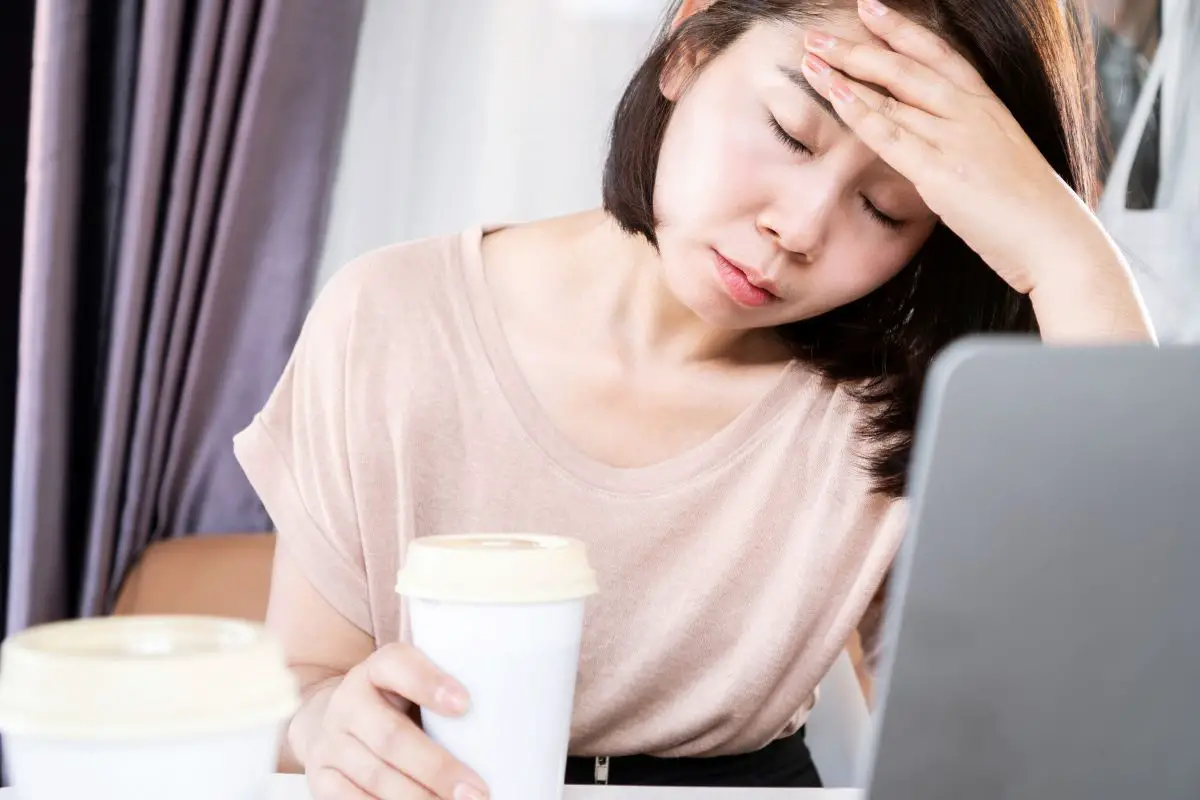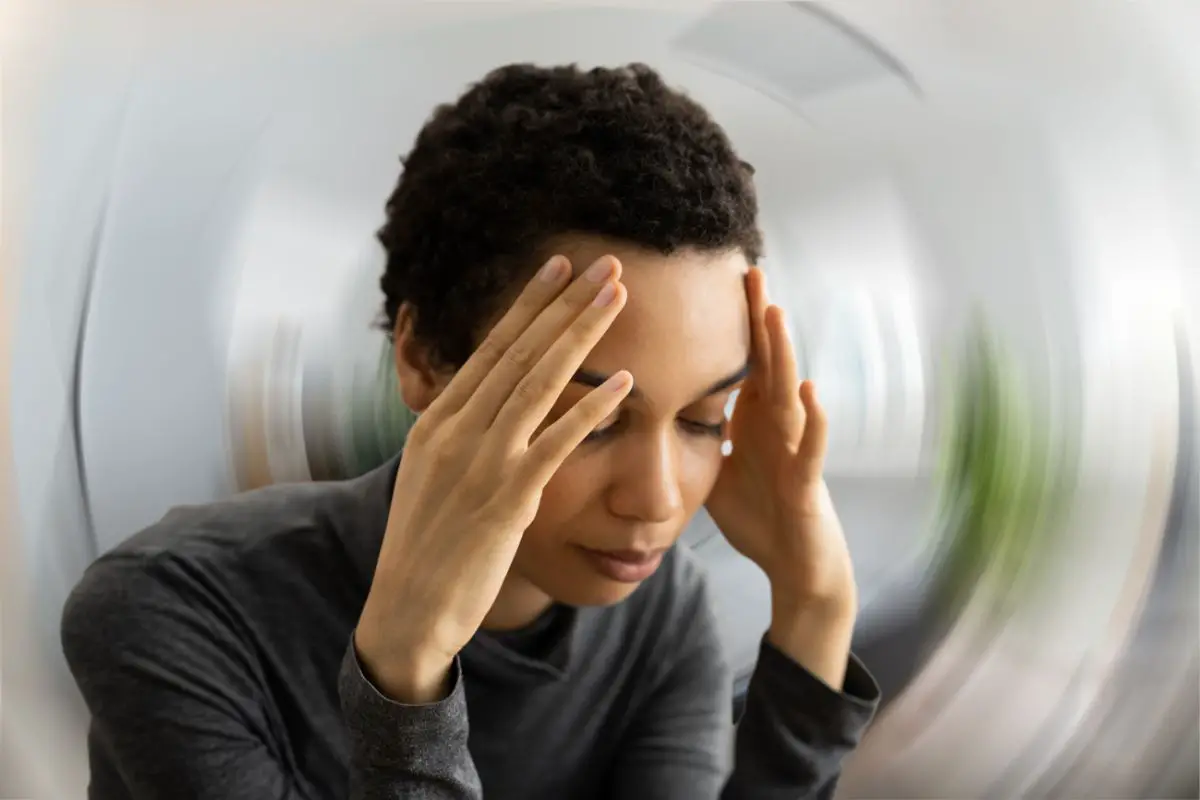Coffee, often referred to as the ‘fuel of the modern world,’ has become an integral part of our daily routines. However, for some individuals, this beloved beverage can come with unwanted side effects, such as dizziness.

Imagine embarking on a journey, only to be unexpectedly derailed by a wave of unsteadiness. Just as a sturdy compass guides us through uncharted territories, this article aims to provide you with a roadmap to navigate the perplexing world of coffee-induced dizziness.
Dizziness after consuming coffee can be caused by various factors, including caffeine sensitivity, dehydration, or even an underlying health condition. To regain your equilibrium, it is crucial to limit your coffee intake, ensuring moderation is key. Additionally, staying hydrated and pairing your coffee with a nutrient-rich meal can help alleviate symptoms. Exploring alternative coffee types or brewing methods may also be worth considering.
However, it is important to note that each individual’s experience with coffee-induced dizziness may differ, and seeking advice from a healthcare professional is paramount if symptoms persist. By following these strategies, you can safely navigate the labyrinth of coffee-induced dizziness and find your way back to steady ground.
Key Takeaways
- Limit coffee intake and gradually reduce consumption
- Stay hydrated by drinking water and consuming hydrating foods
- Consider switching to decaf or alternative drinks with lower caffeine content
- Pair coffee with complex carbohydrates, protein, and healthy fats to minimize dizziness
Understand the Causes of Coffee-Induced Dizziness
The etiology of dizziness following coffee consumption can be attributed to various factors. One significant factor is the stimulant effects of caffeine on the central nervous system. Caffeine, as a psychoactive substance, activates the release of neurotransmitters such as dopamine and norepinephrine, which can lead to increased arousal and alertness. However, excessive stimulation of the central nervous system can result in symptoms like dizziness, especially in individuals who are more sensitive to the effects of caffeine.
Another potential cause of coffee-induced dizziness is related to coffee’s diuretic properties. Coffee is known to increase urine production, which can lead to dehydration if not properly compensated by adequate fluid intake. Dehydration, in turn, can cause a drop in blood pressure, resulting in dizziness or lightheadedness.
Moreover, some individuals may experience dizziness due to the acidic nature of coffee. Acidic beverages can irritate the lining of the stomach, leading to increased production of stomach acid. This acid reflux can affect the esophagus and cause symptoms such as dizziness or nausea.
To address coffee-induced dizziness, it is advisable to limit your coffee intake. By reducing the amount of caffeine consumed, individuals can minimize the stimulant effects on the central nervous system and potentially alleviate dizziness. Additionally, staying adequately hydrated and avoiding consuming coffee on an empty stomach can help mitigate the risk of dizziness.
Limit Your Coffee Intake
Limiting the intake of coffee can help mitigate the effects of dizziness, acting as a brake on the caffeine rollercoaster. By reducing the amount of coffee consumed, individuals can minimize the risk of experiencing dizziness after drinking coffee.
To paint a picture for the audience, consider the following sub-lists:
- Gradual reduction: Gradually decreasing the amount of coffee consumed can allow the body to adjust to lower caffeine levels, reducing the likelihood of dizziness.
- Switch to decaf or alternative drinks: Opting for decaffeinated coffee or other beverages with lower caffeine content can help individuals who are sensitive to caffeine avoid dizziness.
- Time your coffee consumption: Consuming coffee earlier in the day and avoiding it in the late afternoon or evening can give the body more time to metabolize caffeine, reducing the risk of dizziness.
By adhering to these strategies, individuals can effectively limit their coffee intake and reduce the chances of experiencing dizziness. This approach prioritizes safety and provides a practical solution for individuals who enjoy coffee but want to minimize the associated dizziness.
To further promote well-being, the next section will discuss the importance of staying hydrated.
Stay Hydrated
To ensure optimal hydration levels and mitigate the risk of dizziness, it is imperative to maintain a consistent intake of fluids throughout the day. Staying hydrated is crucial, as dehydration can exacerbate the effects of caffeine and contribute to dizziness.
When consumed, coffee acts as a diuretic, increasing urine production and potentially leading to fluid loss. In order to counteract this, it is recommended to drink water or other hydrating beverages alongside coffee. Aim to consume at least eight glasses of water per day, spacing them out evenly.
Additionally, incorporating hydrating foods into your diet, such as fruits and vegetables with high water content, can aid in maintaining proper hydration levels. By staying adequately hydrated, the body is better equipped to process caffeine and minimize any potential side effects, including dizziness.
Transitioning into the subsequent section about ‘pair coffee with food’, it is important to consider the impact of food on caffeine absorption and its potential to further mitigate dizziness.
Pair Coffee with Food
Pairing coffee with food can help enhance the overall experience and potentially minimize any potential adverse effects. When consumed on an empty stomach, coffee can cause a rapid increase in blood sugar levels, which may contribute to dizziness. However, by pairing coffee with food, the absorption of caffeine into the bloodstream can be slowed down, resulting in a more gradual and controlled release of energy.
To optimize the pairing of coffee with food, consider the following:
- Choose complex carbohydrates: Consuming foods rich in complex carbohydrates, such as whole grains or fruits, alongside coffee can help regulate blood sugar levels more effectively. This can prevent the sudden spikes and crashes that may lead to dizziness.
- Incorporate protein: Including protein-rich foods like eggs or Greek yogurt in your breakfast along with coffee can further stabilize blood sugar levels and provide a sustained source of energy.
- Consume healthy fats: Adding a small amount of healthy fats, such as avocado or nuts, to your breakfast can also help slow down the absorption of caffeine and provide a longer-lasting energy boost.
Pairing coffee with food can be an effective strategy to minimize dizziness after consumption. However, if the symptoms persist, it may be worth considering switching to a different type of coffee or brewing method to further alleviate any potential adverse effects.
Consider Switching to a Different Type of Coffee or Brewing Method
Considering a switch to a different variety of coffee or altering the brewing method can potentially alleviate any potential adverse effects and enhance the overall coffee-drinking experience. It is important to note that different types of coffee beans and brewing methods can result in varying levels of caffeine and other compounds, which may affect individuals differently. Some individuals may be more sensitive to certain types of coffee or brewing methods, leading to dizziness or other unwanted symptoms.
To make an informed decision, it is helpful to compare various types of coffee and brewing methods. The table below provides a comparison of three common types of coffee beans: Arabica, Robusta, and blends. It also compares three popular brewing methods: drip coffee, espresso, and French press. This information can assist individuals in selecting a coffee variety and brewing method that may be better suited to their preferences and potential sensitivities.
| Coffee Bean Type | Caffeine Level | Flavor Profile |
|---|---|---|
| Arabica | Moderate | Mild |
| Robusta | High | Strong |
| Blends | Varied | Balanced |
| Brewing Method | Caffeine Level | Taste Profile |
|---|---|---|
| Drip Coffee | Moderate | Balanced |
| Espresso | High | Intense |
| French Press | Moderate | Full-bodied |
By making a switch to a coffee variety or brewing method that suits their preferences, individuals may reduce the likelihood of experiencing dizziness or other adverse effects. However, if symptoms persist, it is essential to consult a healthcare professional for further evaluation and guidance.
Consult a Healthcare Professional if Symptoms Persist

If symptoms of dizziness persist despite altering coffee variety or brewing method, it is advisable to seek professional medical advice for further evaluation and guidance. While switching to a different type of coffee or changing the brewing method may alleviate dizziness for some individuals, it may not be effective for everyone.
Dizziness can be caused by various factors, such as caffeine sensitivity, underlying health conditions, or interactions with medication. Consulting a healthcare professional can help identify the underlying cause of the dizziness and provide appropriate recommendations.
A healthcare professional will conduct a thorough evaluation, taking into consideration the individual’s medical history, symptoms, and lifestyle factors. They may order additional tests or refer the individual to a specialist if needed. Treatment options may include adjusting caffeine intake, managing any underlying health conditions, or exploring alternative beverages that are less likely to cause dizziness.
It is essential to consult a healthcare professional because persistent dizziness can be a symptom of a more serious underlying condition, such as an inner ear disorder, low blood pressure, or anemia. Additionally, a healthcare professional can provide personalized guidance and advice based on the individual’s specific needs and medical history.
It is important to prioritize one’s health and seek professional medical advice to ensure safety and well-being.
Frequently Asked Questions
Can drinking decaffeinated coffee still cause dizziness?
Decaffeinated coffee may still cause dizziness due to factors other than caffeine, such as its acidity or the presence of other stimulants. It is advisable to consult a healthcare professional for further evaluation and guidance.
Is it safe to consume energy drinks instead of coffee to avoid dizziness?
Energy drinks contain high levels of caffeine and other stimulants, which can potentially increase the risk of dizziness. It is not recommended to substitute coffee with energy drinks to avoid dizziness.
Can adding milk or cream to coffee help reduce dizziness?
Adding milk or cream to coffee may help reduce dizziness due to the potential inhibitory effect of proteins and fats on the absorption rate of caffeine. However, further research is needed to confirm this effect.
Are there any specific foods that should be avoided when drinking coffee to prevent dizziness?
To prevent dizziness when drinking coffee, it is advisable to avoid consuming foods high in caffeine, such as energy drinks or chocolate. Additionally, individuals with underlying health conditions should consult a healthcare professional for personalized advice.
How long does it take for dizziness to subside after reducing coffee intake?
The duration for dizziness to subside after reducing coffee intake varies depending on individual factors such as metabolism and caffeine sensitivity. It is recommended to gradually decrease coffee consumption to minimize withdrawal symptoms and allow the body to adjust over time.
Conclusion
Dizziness after consuming coffee can be caused by various factors such as caffeine sensitivity, dehydration, or low blood sugar levels. To alleviate this issue, it is advisable to limit coffee intake, stay hydrated, and consume food along with coffee.
Additionally, switching to a different type of coffee or brewing method might have a positive impact. If symptoms persist, seeking medical advice from a healthcare professional is recommended.
In conclusion, by implementing these strategies, individuals can effectively manage and reduce dizziness caused by coffee consumption, ensuring a more pleasant experience.
Also read: